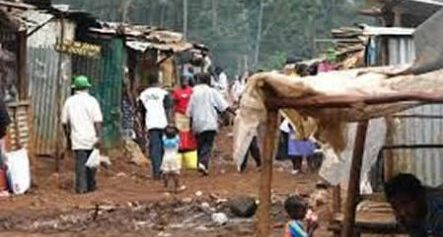Metro
More knocks for Buhari govt as IMF says Nigerians are getting poorer

The President Muhammadu Buhari-led Federal Government has been knocked again with the claim by the International Monetary Fund (IMF) that Nigerians are getting poorer.
The development, according to IMF is due to Nigeria’s slow recovery from recession, adding, that there was urgent need for economic reforms.
Recall that Transparency International (TI) had only days ago reported that corruption in Nigeria is getting worse despite the current government’s fight against corruption mantra.
It could be recalled also that officials of this administration have continuously boasted that they have set the economy back on track, after the country in 2017, escaped the devastating recession that took a great toll on Nigerians in 2016.
However, despite this boast, IMF claimed that Nigerians rather than get better are instead getting poorer.
IMF in its report, which was sighted by Reuters on Wednesday, expects that government will “muddle through” in the medium term, adding that any progress could also be threatened if elections next year consume political energy and resources.
According to the financial expert report, Nigeria’s outlook for growth had improved but remained challenging.
IMF said in its annual Article IV review of Nigeria’s economy, “Comprehensive and coherent” that economic policies “remain urgent and must not be delayed by approaching elections and recovering oil prices.
“Higher oil prices would support a recovery in 2018 but a ‘muddle-through’ outlook is projected for the medium term under current policies, with fiscal dominance and structural constraints leading to continuing falls in real GDP per capita.”
Risks to growth identified in the report, include additional delays to implementing policies and reforms ahead of the 2019 elections, security tensions, and oil prices, a fall in which could see a reversal in capital flows.
READ ALSO: Amid economic worries, NBS latest report puts Nigeria’s GDP growth rate at 0.82%
“Further delays in policy action, including because of pre-election pressures, can only make the inevitable adjustment more difficult and costlier,” the report said.
IMF therefore maintained its position for the country to make simpler its complex foreign exchange system.
“Moving towards a unified exchange rate should be pursued as soon as possible. The IMF staff does not support the exchange measures that have given rise to the exchange restrictions and multiple currency practices,” the report added.
RipplesNigeria… without borders, without fears
Click here to join the Ripples Nigeria WhatsApp group for latest updates.
Join the conversation
Support Ripples Nigeria, hold up solutions journalism
Balanced, fearless journalism driven by data comes at huge financial costs.
As a media platform, we hold leadership accountable and will not trade the right to press freedom and free speech for a piece of cake.
If you like what we do, and are ready to uphold solutions journalism, kindly donate to the Ripples Nigeria cause.
Your support would help to ensure that citizens and institutions continue to have free access to credible and reliable information for societal development.
























